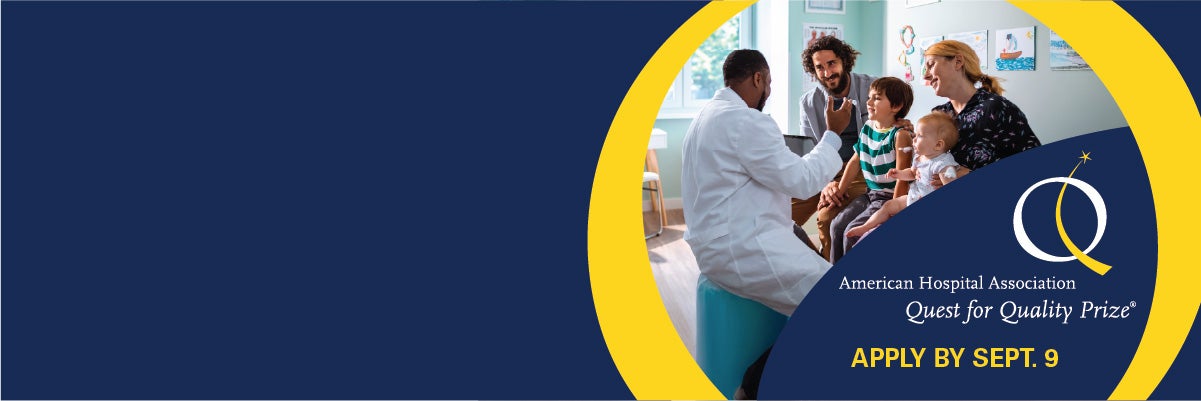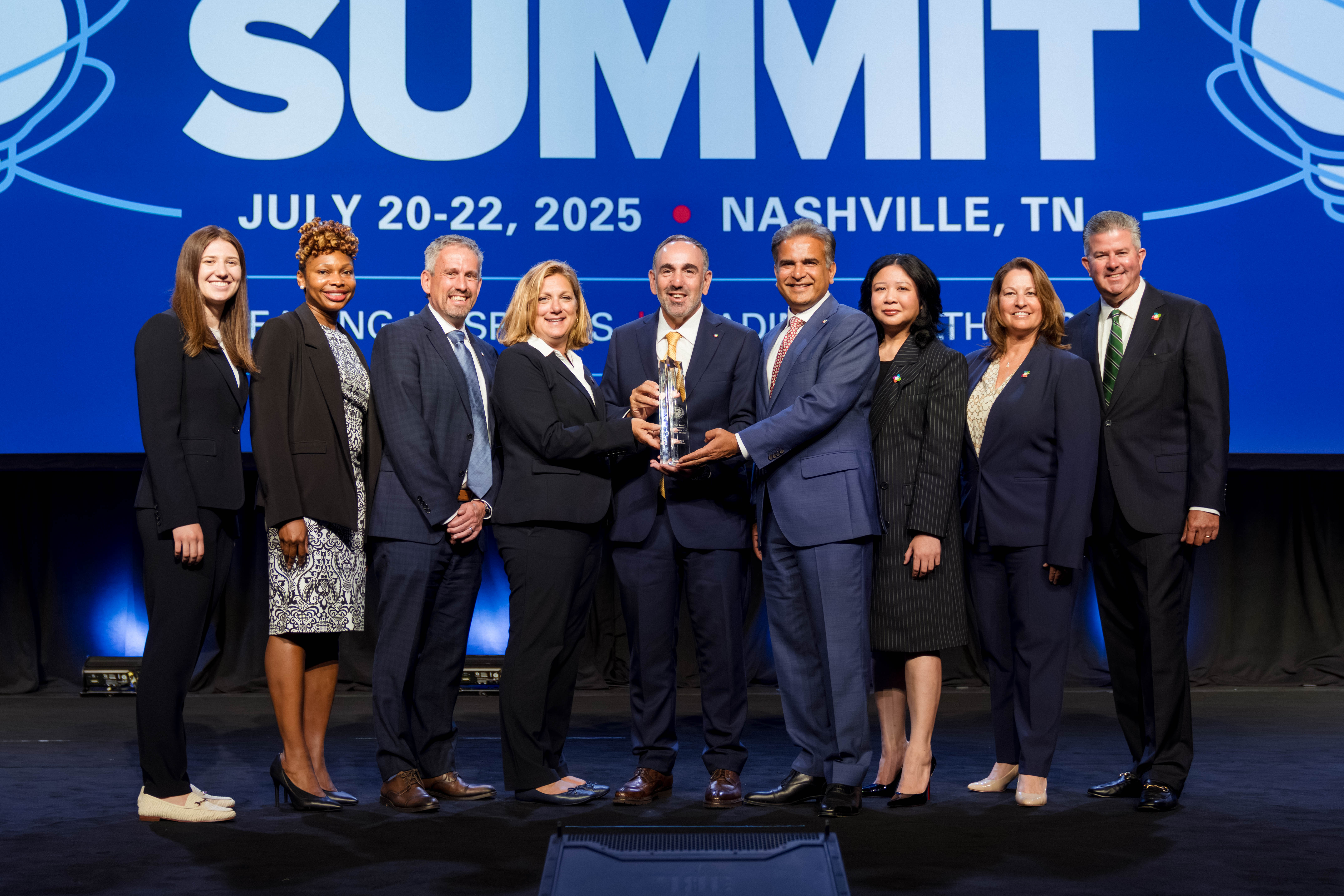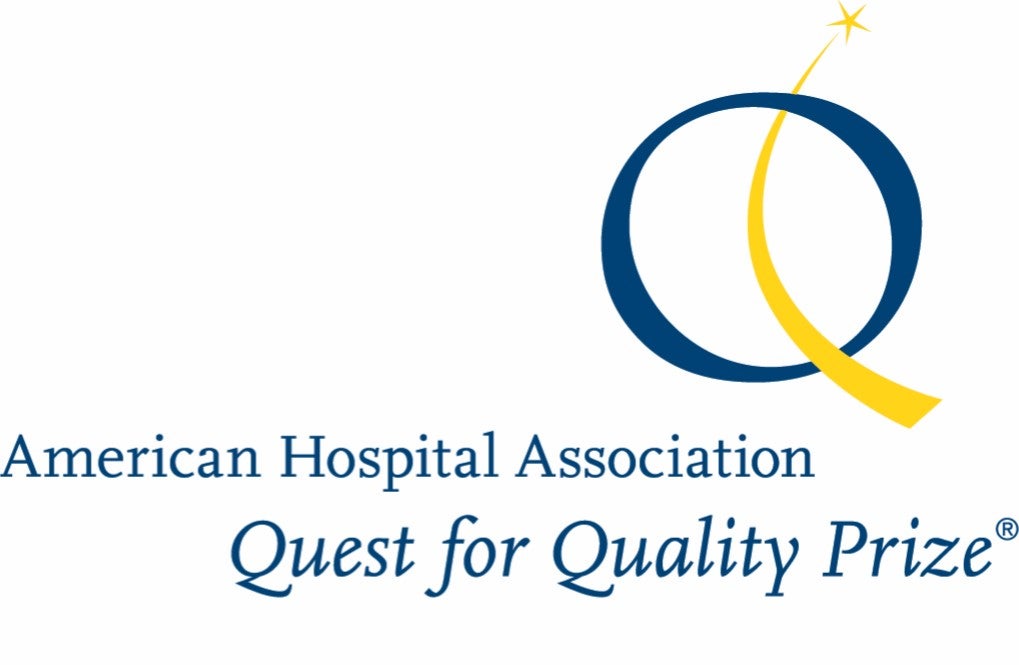

AHA Quest for Quality Prize
2025 AHA Quest for Quality Prize Honorees Announced
Congratulations to 2025 AHA Quest for Quality Prize Winner Hartford HealthCare, Hartford, Conn. Hartford HealthCare and Quest for Quality Prize Finalist CommonSpirit Health, Chicago, were honored at the AHA Leadership Summit in Nashville.

Hartford HealthCare accepts the 2025 AHA Quest for Quality Prize at the 2025 AHA Leadership Summit.
To learn more about this year's honorees, watch the celebratory video and download the honoree booklet. The application period for the 2026 AHA Quest for Quality Prize is closed. The 2026 awards will be presented at the 2026 AHA Leadership Summit, July 12-14, in Denver.
The AHA Quest for Quality Prize honors hospitals and health systems committed to leadership and innovation in improving quality and advancing health. Honorees provide access to exceptional quality, safe and patient- and family-centered care, partner with community organizations and agencies to improve the health status of their communities, and develop new and innovative models of care.
The application period for the 2026 AHA Quest for Quality Prize is closed. The 2026 awards will be presented at the 2026 AHA Leadership Summit, July 12-14, in Denver.
Join our mailing list for updates about future application periods.
Read a blog on the 2025 Quest for Quality Prize application process and the 2025 winners.
Readiness
How do you know if your organization is “ready” to apply?
The quest for quality is a journey without end; you should apply if your organization is striving to
- Raise awareness of the value of a hospital-wide/system-wide commitment to advancing health in America by providing access to exceptional quality, safe, and patient- and family-centered and affordable care that promotes individual and community well-being and adds value to lives
- Showcase successful efforts to develop and promote new and innovative models of care, services and collaboration to provide seamless care
- Inspire hospitals and systems to lead and partner with other community organizations to improve health status and address health care disparities
- Recognize hospital and system leadership to improve efficiency and effectiveness of care
Hospitals and systems tell us that going through the application process was valuable in and of itself — it led to amazing discoveries about their own organization, their dedicated teams, and their best practices and innovation.
All health systems and hospitals in the United States are eligible to apply for the award. A “system” is defined as two or more hospitals owned, leased, sponsored or contract managed by a central organization. “System” shall refer to the parent organization and “hospital” shall refer to the system’s individual hospitals. Depending on your organization type, you have the option of selecting the “Hospital” or “Health System” application.
Please email questforquality@aha.org with any questions about the prize.
AHA Quest for Quality Prize Sponsor
The AHA Quest for Quality Prize is generously sponsored by Laerdal Medical. Laerdal Medical is a global leader in immersive education, training, and simulation solutions with a mission of helping save lives. Improving the quality of care is part of the company’s vision and its goal of helping save one million lives, every year, by 2030. For more information, visit www.laerdal.com.
Leading for Safety: AHA Quest for Quality Series
The AHA Patient Safety Initiative presents Leading for Safety, a virtual series featuring insights from past Quest for Quality awardees. This series explores how health care leaders can drive safer, higher-quality care by fostering a culture of safety and innovation. Combining the prestigious Quest for Quality Prize with the AHA’s Patient Safety Initiative, Leading for Safety provides practical strategies for executive leadership in advancing patient safety.

Join Our Mailing List
For updates on the AHA Quest for Quality Prize and to be notified when the new application goes live, please join our mailing list.
AHA Quest for Quality Prize Committee Members


